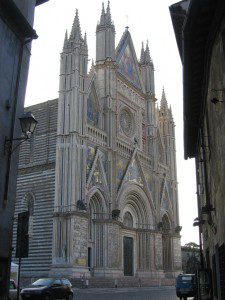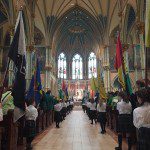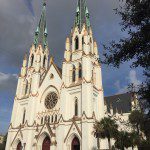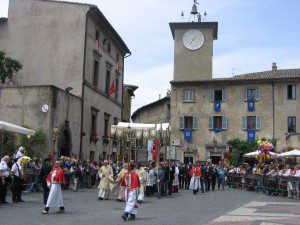
During the summer of 1263, Peter of Prague traveled to Rome on a pilgrimage to pray at the tomb of Saint Peter bringing with him many doubts about his faith and his vocation as a priest. After regaining his spiritual strength and calming his doubts, Peter began his journey home, stopping in the village of Bolsena north of Rome for the night.
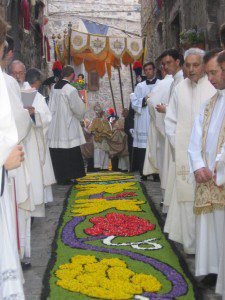
As he celebrated Mass the host began to bleed. The blood dripped onto the corporal which lay on the altar beneath the sacred vessels. Amazed and overjoyed, Peter traveled to the neighboring town of Orvieto to describe what had happened to Pope Urban IV. The Pope immediately sent his representative to bring the corporal to Orvieto for inspection. His representative did as he was told, and once the corporal arrived to Orvieto it was kept at its cathedral rather than at the small country village of Bolsena.
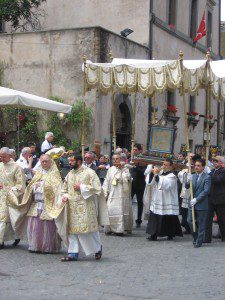
One year later, 1264, Pope Urban IV declared the Feast of the Body and Blood of Our Lord, Corpus Christi. Urban commissioned Saint Thomas Aquinas, who at that time lived in Oriveto, to compose the liturgy for the new feast. From this commission Saint Thomas gave the Church the beautiful hymn Pange Lingua, which ends with the well-known Tantum Ergo.
The Eucharistic miracle of Orvieto serves as a living reminder of the words of Jesus Christ, “unless you eat the flesh of the Son of Man and drink his blood, you do not have life within you. Whoever eats my flesh and drinks my blood has eternal life, and I will raise him on the last day. For my flesh is true food, and my blood is true drink.”
It is an extraordinary reminder of a simple truth: that Jesus Christ truly comes to us under the appearance of bread and wine. Through His sacramental presence, God nourishes us by feeding us with heavenly food.
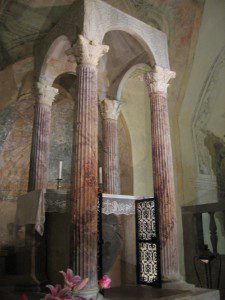
We may not have experienced a miracle like Peter of Prague, but Jesus reminds us, “blessed are those who have not seen yet believe.” It is possible to see the century-old corporal at the Chapel of the Corporal in Oriveto’s magnificent cathedral, but more magnificent is our ability to receive the Body and Blood of Christ Our Lord which are true food and true drink.
